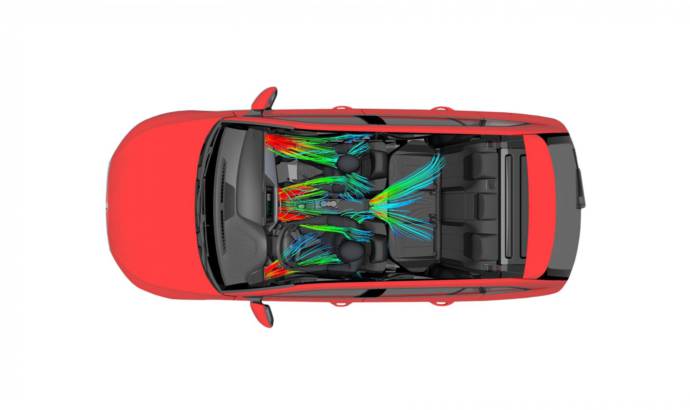Afraid of how plants and trees can affect your health? Skoda is thinking about the benefits of filtered air and introducing a new technology, very helpful now in the time of the pandemic.
Allergy UK is estimating that nearly 50% of the adult population may suffer from hay fever symptoms. The consequences can result in more than just a stuffy nose. At only 30 mph, a sneeze can leave a driver blinded for around 30 metres, meaning exposure to dust or pollen can have serious implications for safety behind the wheel.
The Climatronic Air Care System in ŠKODA cars can help to remedy the situation. Using a suite of sensors, it monitors air quality and, if necessary, responds by automatically activating the air recirculation function. The cabin air filters in current ŠKODA vehicles, such as the Octavia, Karoq, Kodiaq and Superb, are also crucial for clean air in the interior. These perform three functions simultaneously: catching fine dust particles, preventing allergens from entering the interior, and absorbing unpleasant odours.
The hay fever season – comprising spells of tree, grass and weed pollen – lasts until September. Through effective interior filters and intelligent air conditioning, the Climatronic with Air Care System keeps ŠKODAs like the new, all-electric Enyaq iV free of the majority of pollen and fine dust particles year-round. The technology helps increase safety for allergy sufferers and fellow road users alike, as well as improving comfort for occupants who might have breathing difficulties, especially individuals that are sensitive to such issues and children.
Should excessive air pollution be detected, the air recirculation function is automatically activated, preventing contaminated air from entering the vehicle while cleaning internal air via recirculation. During this circulation process, the air passes through a highly effective activated carbon cabin filter. Not only does it remove small particles from the air flow, but pollen and even unpleasant odours are also absorbed.
ŠKODA uses three different cabin filters in its vehicles. In addition to the basic version for the entire ŠKODA model range, the manufacturer uses an activated carbon filter that, as well as offering the highest filter capacity, also absorbs unpleasant odours. The third version is a filter capable of removing allergens.
To ensure that the filtration remains highly effective, cabin filters should be replaced every 18,000 to 36,000 miles. An ideal time to replace the filters is in spring or early summer. This is the case for two reasons: after many winter journeys in the rain and snow, mould can appear in the filters and, with a new filter in spring, the system is optimally prepared for the first pollen.



